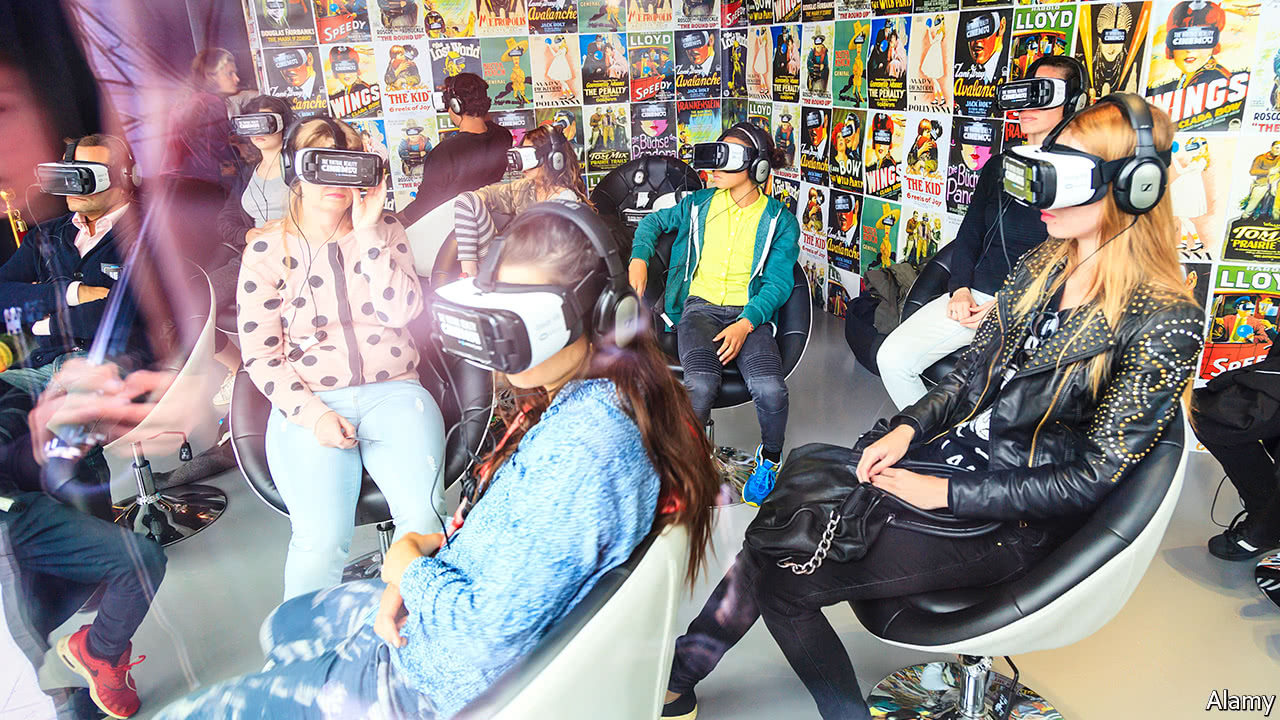
OUTSIDE a squat grey building in Santa Monica, the California sun melts the tar. Inside, in a dark room roughly the size of a small shipping container, two men are exploring the world by means of virtual reality (VR). They squash spiders in an abandoned temple, hit a home run at Yankee Stadium and float through a Blade Runner-esque landscape, all in the span of eight minutes. It feels much longer than that, and also shorter—time is hard to grasp in VR.
The creator of the experience is Walter Parkes, a former boss of DreamWorks Pictures, a film studio, who last year co-founded Dreamscape Immersive. The startup plans a chain of VR multiplex cinemas offering ten-minute interactive experiences for around $15 each. The first will open at a shopping mall near Beverly Hills at the end of the year; another 14 are planned for 2018. Mr Parkes says it costs about $2m to make a ten-minute VR experience, compared with around $200m for a big-budget Hollywood movie (not counting marketing and distribution). The economics work even though people are entertained for much shorter periods, he argues.
-
Obituary: Joel Joffe died on June 18th
-
A new play explores the genesis of Britain’s titanic tabloid
-
Retail sales, producer prices, wages and exchange rates
-
Foreign reserves
-
What is the OECD?
-
How to teach civics in school
The men and women over in Burbank, where the big studios are based, are interested. Dreamscape has attracted around $10m in investment from Fox, Warner Brothers and MGM, along with Steven Spielberg and Westfield, a shopping-centre operator. Disney has invested $66m in Jaunt, which makes tools for creating VR content. Warner Brothers recently announced a partnership with IMAX, which specialises in large-screen cinemas, to fund and create VR “experiences” for three upcoming films.
Promotional and extra material for films in VR is the first priority. Later on studios expect VR to become a format of its own, a cross between movies and games. “The lines are getting blurred. They use a lot of the same tech, the same tools,” says Thomas Husson, an analyst at Forrester, a research firm.
Hollywood is in a battle for attention as well as dollars. In the future Harry Potter fans, for example, may consider it a waste to go to an attraction in the English countryside when they can visit Diagon Alley at home in a headset. They may even do both. If studios get a grip of VR, every minute spent in a cinema could mean an extra one in a park and yet another in a headset.
Source: economist
Hollywood studios dip their toes in virtual reality